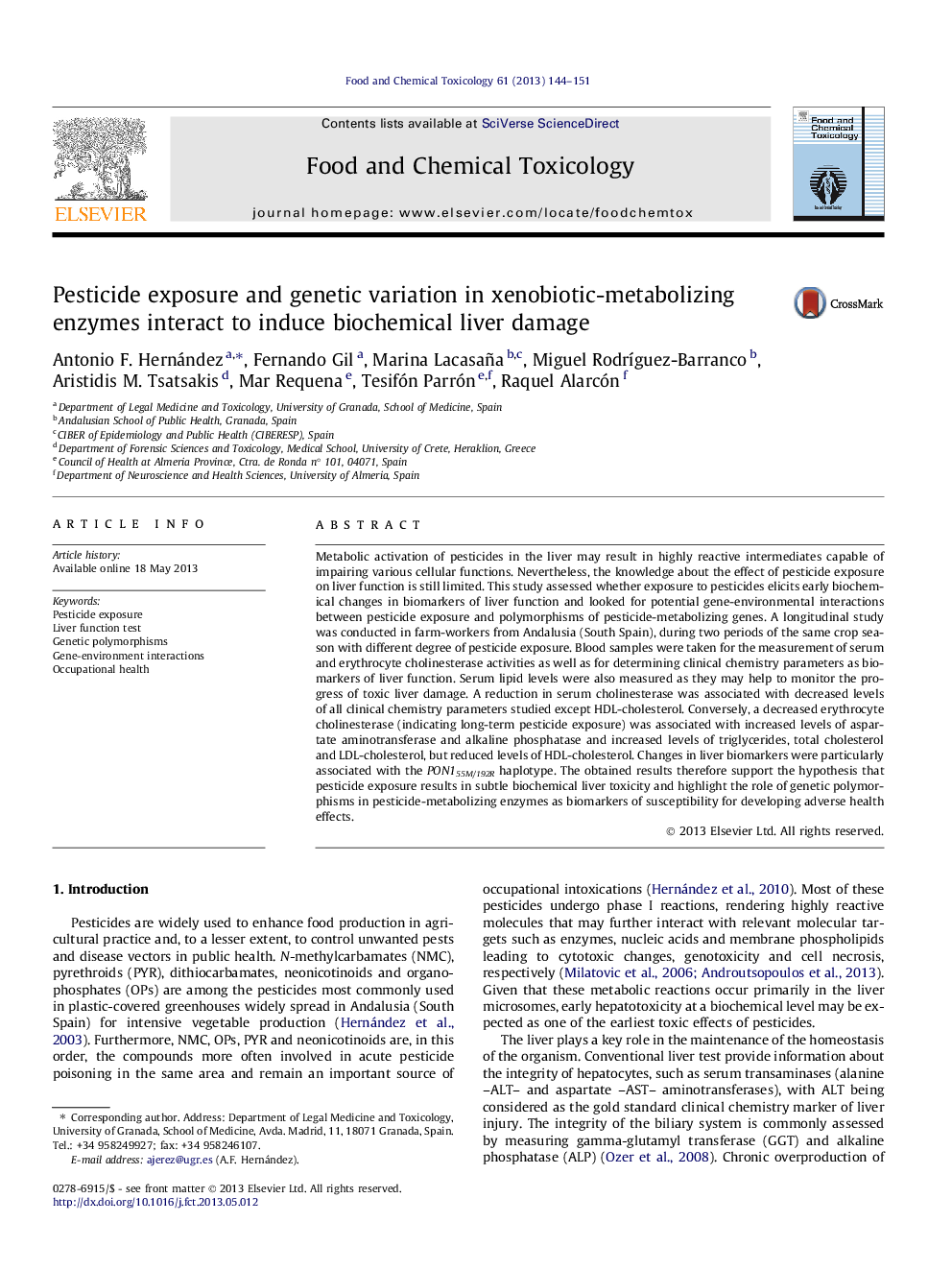| کد مقاله | کد نشریه | سال انتشار | مقاله انگلیسی | نسخه تمام متن |
|---|---|---|---|---|
| 2585174 | 1561783 | 2013 | 8 صفحه PDF | دانلود رایگان |

• AChE was inversely associated with a number of clinical chemistry parameters.
• Reduced BChE was associated with decreased levels of clinical chemistry parameters.
• Pesticide exposure induced a subtle biochemical liver damage.
• Carriers of the PON1192RR genotype seem to have a higher risk for liver dysfunction.
• Significant gene-environment interactions were observed on liver function test.
Metabolic activation of pesticides in the liver may result in highly reactive intermediates capable of impairing various cellular functions. Nevertheless, the knowledge about the effect of pesticide exposure on liver function is still limited. This study assessed whether exposure to pesticides elicits early biochemical changes in biomarkers of liver function and looked for potential gene-environmental interactions between pesticide exposure and polymorphisms of pesticide-metabolizing genes. A longitudinal study was conducted in farm-workers from Andalusia (South Spain), during two periods of the same crop season with different degree of pesticide exposure. Blood samples were taken for the measurement of serum and erythrocyte cholinesterase activities as well as for determining clinical chemistry parameters as biomarkers of liver function. Serum lipid levels were also measured as they may help to monitor the progress of toxic liver damage. A reduction in serum cholinesterase was associated with decreased levels of all clinical chemistry parameters studied except HDL-cholesterol. Conversely, a decreased erythrocyte cholinesterase (indicating long-term pesticide exposure) was associated with increased levels of aspartate aminotransferase and alkaline phosphatase and increased levels of triglycerides, total cholesterol and LDL-cholesterol, but reduced levels of HDL-cholesterol. Changes in liver biomarkers were particularly associated with the PON155M/192R haplotype. The obtained results therefore support the hypothesis that pesticide exposure results in subtle biochemical liver toxicity and highlight the role of genetic polymorphisms in pesticide-metabolizing enzymes as biomarkers of susceptibility for developing adverse health effects.
Journal: Food and Chemical Toxicology - Volume 61, November 2013, Pages 144–151